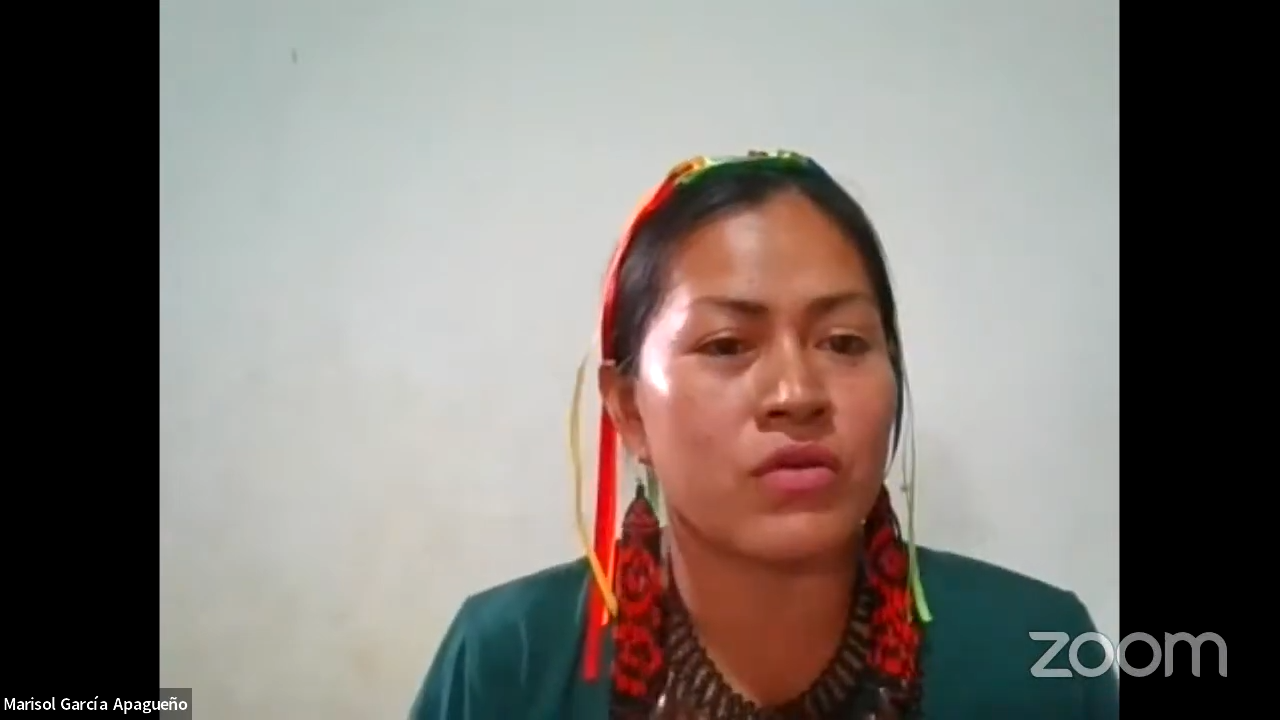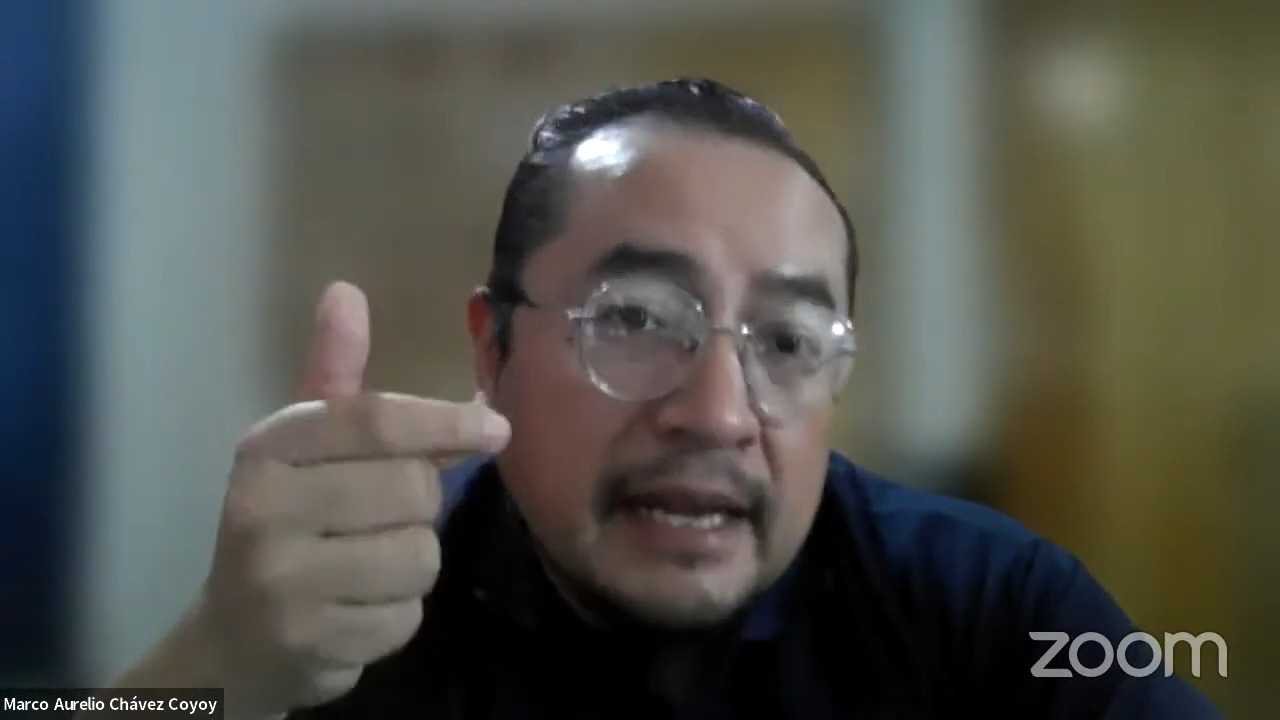2023-09-22
By Jeremy Gaunt
It said something about the subject matter of the latest Land Dialogues webinar on September 14 that it had to begin with an expert explaining just what it was about. Carbon credits and their trading markets are not the easiest things for many people to grasp.
The webinar – hosted by Tenure Facility, Land Portal, Ford Foundation, and Thomson Reuters Foundation – focused on the sometimes controversial market and how it impacts Indigenous Peoples as the owners and guarantors of much of the world’s forests. The majority of carbon offset initiatives are taking place in Indigenous and community lands.
Not understanding the market is part of the challenge. At its simplest, Katherine Lofts, a specialist on human rights and climate change at Canada’s McGill University, explained how carbon markets are a trading system in which communities or countries get credits for reducing greenhouse gas emissions through, say, protecting areas of carbon-soaking rainforest or developing renewable energy projects.
These credits are then bought by companies, individuals, or other entities to offset their own emissions.
The process, Lofts said, has prompted huge interest on both sides of the market: “Many countries in Africa, Asia, and Latin America are now poised to implement their own (climate change mitigation) programmes and projects and other land-based initiatives that are aiming to remove, reduce, and avoid carbon emissions, thus generating credits and generating offsets for the carbon market.”
But Lofts and other panellists at the webinar outlined a series of problems with the market, notably that decisions about land use, projects, and credits are being made without reference to Indigenous Peoples. Yet the majority of carbon initiatives that produce the credits are taking place on land that is customarily held by and stewarded by Indigenous Peoples and local communities.

Marisol García Apagueño
"First we didn't have information. Second, we weren't the decision makers, we weren't part of the advisory council. Nothing at all."
Totally excluded
Marisol García Apagueño, a Kichwa leader from northern Peru, outlined the problem as it relates to large national conservation areas in her Amazon forest region. The Cordillero Azul Park, for example, is roughly the size of the US state of Connecticut and has reportedly brought in tens of millions of dollars in carbon credits since 2014.
The local indigenous communities were not party to any of the process of designating the land or selling the credits, García Apagueño said, even though the area comprises traditional lands.
“First we didn’t have information,” she said. “Second, we weren’t the decision makers, we weren’t part of the advisory council. Nothing at all. We were basically excluded totally when it came to decision-making.”
Indeed, some traditional activities such as hunting are illegal in the preservation area, causing clashes with the locals who have been there for millennia.
Marco Aurelio Chávez Coyoy painted a similar picture in Guatemala, where he is coordinator of the Community Forestry Association of Guatemala Utz Che’. Local communities’ wishes are brushed aside by the most powerful voices in the country’s carbon credit market, which are often not the government but powerful and privileged people and sectors.
“The challenge is really that the voices of these (indigenous) communities and peoples are legitimately heard, but also taken into consideration. And that’s where the prior consulting and informed consent come into play,” he said.
Free, prior, and informed consent is a right specified in the UN Declaration on the Rights of Indigenous Peoples. It is designed to ensure that traditional lands are not exploited or divvied up to the detriment of those who live there. But it is far from enforced globally.
And this is even before the issue of understanding how the credit market – a Western, primarily English-language, concept – works.
There is little evidence that the rights to self-determination, land, and resource rights or the rights to participation and consultation are being upheld robustly in the carbon market.

Marco Aurelio Chávez Coyoy
"The challenge is really that the voices of these (indigenous) communities and peoples are legitimately heard, but also taken into consideration."
Costa Rican light
The panellists also noted that even aside from consent issues, the carbon trading market is rife with controversy about how effective it is.
McGill University’s Lofts, for example, noted that recent studies have concluded that carbon market credits are not doing what they are supposed to, that is, mitigate climate change. “Many of them are actually bogus,” she said.
García Apagueño, meanwhile, raised the issue of credits being used for so-called greenwashing, when companies take seemingly green actions that cover up what they are actually doing to the environment.
“Companies are using our forest to wash their image,” she said, adding, “We are being criminalized, we are being persecuted, there is a great level of violence towards Indigenous Peoples because we are making these issues visible.”
Despite this, there was some positive feedback. Levi Sucre Romero, an Indigenous Bribri Costa Rican who is coordinator of the Mesoamerican Alliance of Peoples and Forests, said the carbon market had made some progress in his country.
Free, prior, and informed consent is a matter of course – and it has been paying off.
“(Indigenous People) have been working at a national level for our carbon trading system. This allowed us to work on creating a national network strategy that included previous and informed consent, and created the prerequisite in our country, so that Costa Rica today is able to create more investment for more funding for forests through the carbon market,” Sucre Romero said.
The World Bank reported an example of that funding in August last year, when it said its Forest Carbon Partnership Facility had paid Costa Rica US$16.4 million for reducing 3.28 million tons of carbon emissions during 2018 and 2019. The payment put Costa Rica on track to unlock up to US$60 million for the reduction of up to 12 million tons of CO2 emissions by the end of 2025.
The Land Dialogue panellists were unanimous that Indigenous Peoples and local communities, the ancestral stewards and protectors of the lands, are still vulnerable to and not benefitting from the carbon market. Indigenous voices and concerns are gaining traction and need to be addressed if the world is to have a credible carbon market.
Articles